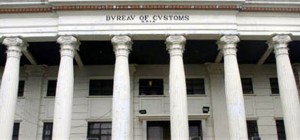Budget deficit narrowed in February
The shortfall between the state’s revenues and expenses narrowed in February as reforms at the Bureau of Customs reaped dividends in the form of higher collections.
Documents released by the Bureau of the Treasury Monday showed the budget deficit in February eased to P9.7 billion, down 17 percent year-on-year. This brought the year-to-date deficit to P43.9 billion, up 40 percent from the same two-month period last year.
“The President’s Customs Reform Program continues to unlock the growth potential of the Bureau of Customs and is a continuing narrative of how good governance translates into good economics,” Finance Secretary Cesar Purisima said.
Customs collections were up by more than a fifth in February, the second consecutive month that revenue growth topped 20 percent.
Collections by the Bureau of Internal Revenue (BIR) rose 8 percent to P182.5 billion in the two-month period from a year ago, but continued to be off target. The Customs bureau, meanwhile, grew revenues by 22 percent to P57.2 billion.
Article continues after this advertisementThe growth in revenues outpaced spending for the two months, official documents showed.
Article continues after this advertisementCombined expenditures for the two months totaled P313 billion, which is an 11-percent increase over figures in the same period last year. Interest payments for February amounted to P15.9 billion, 11 percent up year-on-year.
The lower deficit also came as a result of the success of the government’s liability management program. Interest payments in February decreased by 11 percent compared to the same period last year.
Netting out interest payments, the national government recorded a primary surplus for February of P6.1 billion, bringing the year-to-date surplus to P28.4 billion.
In the first quarter of this year, the DOF’s anti-graft arm, the Revenue Integrity Protection Service, was able to secure eight suspensions and dismissals of BIR and BOC personnel found to be living beyond their means.
The Aquino administration also remains committed to completing systemic reforms in its revenue-generating agencies through transparency and accountability measures, the DOF said.
Aside from the monthly public disclosure of all import transactions by the Bureau of Customs, the DOF also made local government unit (LGU) fiscal sustainability scorecards available for public viewing through the Iskor ng ’yong Bayan (iskor.blgf.gov.ph), an initiative to make local treasurers and assessors accountable to the public for their local fiscal management.
The DOF likewise continues to push for the following bills that would improve the country’s fiscal sustainability: The tax incentives management transparency and accountability (TIMTA) act, the rationalization of fiscal incentives, the reform of the fiscal regime for mining and the customs modernization and tariff act (CMTA).
